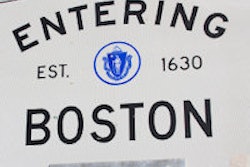Legislation introduced into the U.S. House of Representatives would amend Title XIX of the Social Security Act to require states to provide oral health services to aged, blind, or disabled individuals under the Medicaid program.
HR 1606, the Specialty Care Dentistry Act of 2011, was introduced by Rep. Eliot Engel (D-NY) and co-sponsored by Rep. Janice Schakowsky (D-IL).
Among the bill's findings:
- For the aged, blind, or disabled, oral health services are deemed "optional" by the federal government, and most states provide little to no Medicaid coverage for these services.
- In 2003, adult aged, blind, and disabled Medicaid recipients received basic oral health services in only six states: Connecticut, New Jersey, New York, North Dakota, Pennsylvania, and Wisconsin.
- Appropriate and necessary oral health services for adult aged, blind, and disabled people will help reduce not only Medicaid costs for these populations, but also downstream Medicare expenditures, which together total almost $600 billion annually.
- Dental office overhead averages more than 65%, but Medicaid reimbursement rates fall far short of covering these expenses.
- Additional federal investment for the delivery of oral health services is needed to ensure vulnerable adults receive oral health benefits.
HR 1606 calls for the following services to be provided to special needs individuals through Medicaid:
- Relief of pain and infections
- Restoration or replacement of teeth
- Periodontal treatment
- Dental health preventive services, including adult fluoride application
- In- and out-patient dental surgical, evaluation, and examination services
- Dentures or partial denture care
- Per patient house call and long-term care facility visits
- Sedation and anesthesia
- Behavior management services
The bill, which was introduced April 15, has been referred to the House Subcommittee on Health.



















